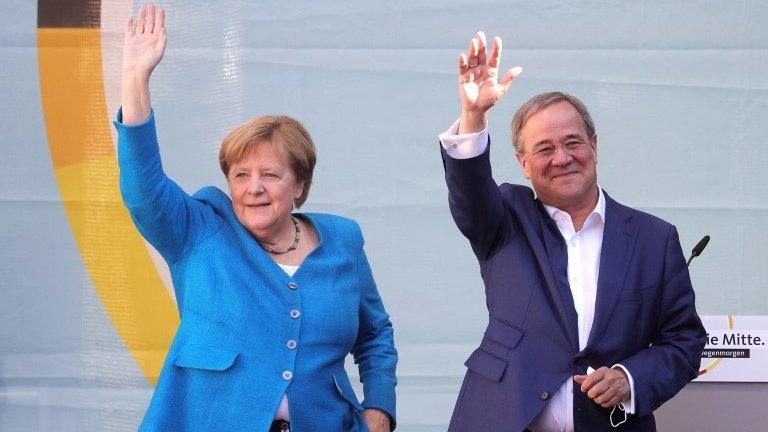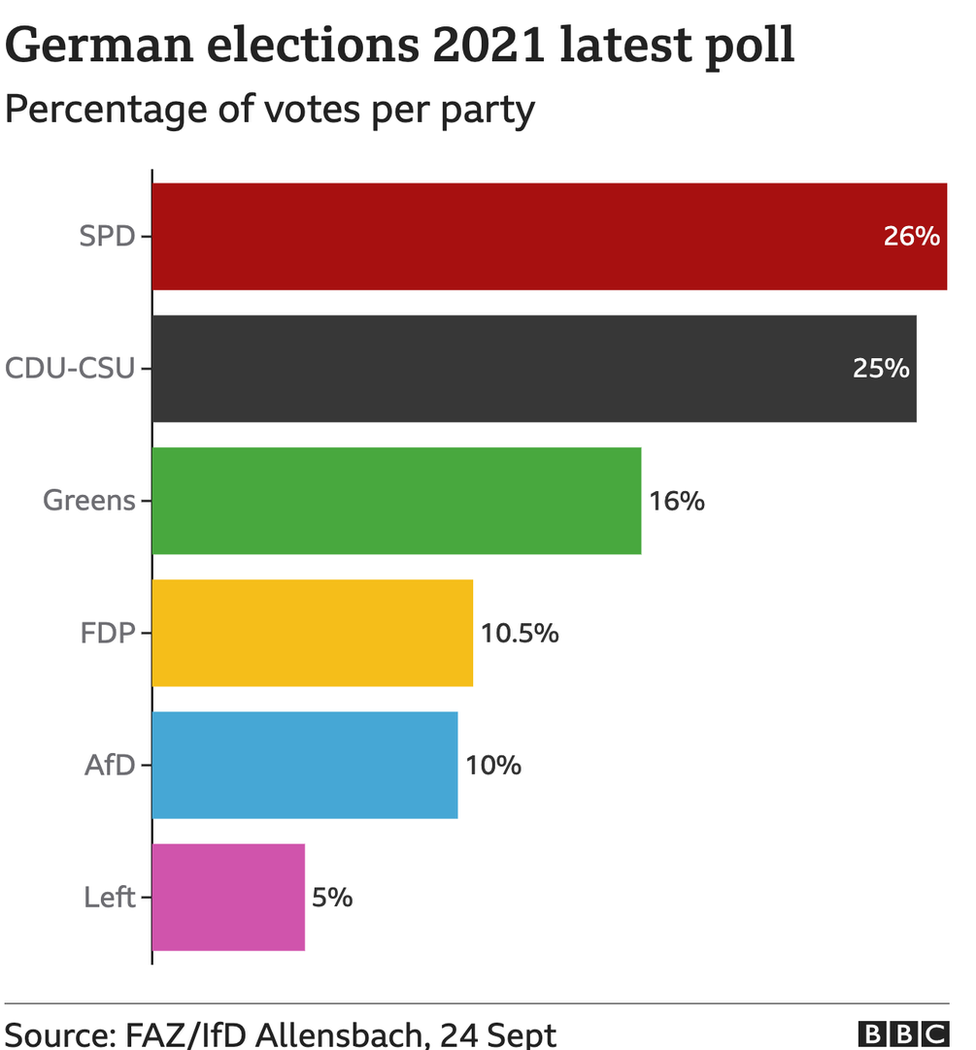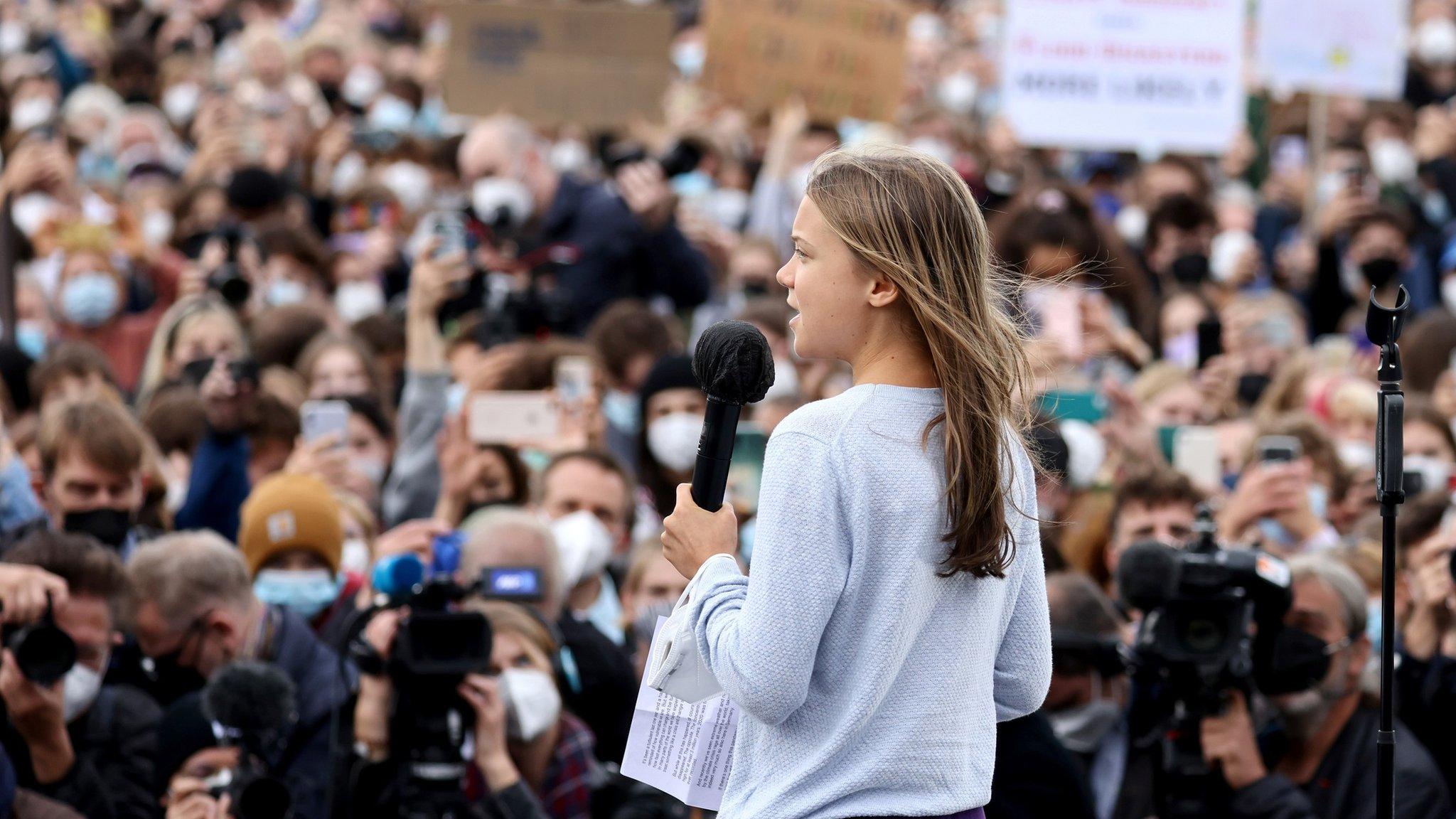Germany elections: Merkel backs 'bridge-builder' Laschet as successor
- Published

Outgoing Chancellor Angela Merkel and her party's candidate to replace her, Armin Laschet, spoke at a rally on Saturday
German Chancellor Angela Merkel has backed her centre-right party's candidate Armin Laschet to succeed her, in an unusually tight poll campaign.
At the final CDU rally, in Mr Laschet's home town of Aachen, Mrs Merkel praised him as a "bridge-builder who will get people on board".
The election is too close to call, with polls putting the centre-right almost neck and neck with the centre-left SPD.
Mrs Merkel has dominated German politics for 16 years as chancellor.
Mrs Merkel had vowed to avoid the campaign for Sunday's election, but her CDU-CSU alliance has lost what was a comfortable lead in the polls and is now trailing just behind the SPD (Social Democrats) - the junior partners in the current coalition government.

The Green Party is on course to come third, but could still feature in government; analysts say a wide range of coalitions could be technically possible, if politically tricky, to negotiate.
The SPD's success is largely attributed to its candidate, current Finance Minister Olaf Scholz, who exudes the same understated calm many have admired in Angela Merkel, says the BBC's Jenny Hill in the capital, Berlin.
Mr Scholz, making his last appeal to voters in the Potsdam constituency, near Berlin, where he is standing, said a coalition with the Greens might be possible.
"The stronger the SPD is, the easier it will be to build a government," he told voters.

No more party loyalties
By Damien McGuinness, BBC News, Berlin
It's impossible to predict whether Angela Merkel's successor will be the conservative Armin Laschet or the centre-left Olaf Scholz.
Four months ago the Greens were leading the polls. Then the conservatives pulled ahead. Today the centre-left are favourites but their lead has almost disappeared.
Party loyalties have broken down and record numbers are undecided, in some polls around 40%.
A safer bet is that Mr Scholz or Mr Laschet could end up leading a three-way coalition with the Greens and the business-friendly, liberal FDP. The two kingmaker parties are traditionally suspicious of each other: high-taxing moralising killjoys versus car-loving neoliberal climate-killers are the cliches.
But they are also surprisingly similar, with young, energetic, socially liberal MPs pushing to modernise Germany - and crucially they are keen for power.

But there are a range of issues at the forefront of voters' minds, including climate change.
On Friday, tens of thousands of young activists marched throughout the country to demand greater action to tackle global warming. Climate change has been a central theme in the election campaign.
Swedish climate activist Greta Thunberg told crowds in Berlin that no political party was doing nearly enough to fight the climate crisis.
Olaf Scholz: EU and UK will have to work together as friends
The vote in Europe's biggest economy, which stands at the heart of the European Union, is being closely watched by allies on the continent and around the world.
Germans are set to elect members of the lower house of the federal parliament, the Bundestag, made up of at least 598 seats, and usually more. Some 60.4 million Germans over the age of 18 are eligible to vote.
Although the winning party becomes clear on the night, the make-up of the next government is only known once a candidate for chancellor is able to form an absolute majority in parliament with one or two other parties, meaning Germany's new leader will not be known immediately.
Related topics
- Published24 September 2021
